Filter by

Medicine and memory in Tibet : amchi physicians in the age of reform
Only fifty years ago, Tibetan medicine, now seen in China as a vibrant aspect of Tibetan culture, was considered a feudal vestige to be eliminated through government-led social transformation. Medicine and Memory in Tibet examines medical revivalism on the geographic and sociopolitical margins both of China and of Tibet’s medical establishment in Lhasa, exploring the work of medical practitio…
- Edition
- -
- ISBN/ISSN
- 9780295743004
- Collation
- xvi ; 286p. : ill.
- Series Title
- -
- Call Number
- 610.9515 THE m

Changing south pacific
The texts collected in this volume take an anthropological approach to the variety of contemporary societal problems which confront the peoples of the contemporary South Pacific: religious revival, the sociology of relations between local groups, regions and nation-States, the problem of culture areas, the place of democracy in the transition of States founded on sacred chiefdoms, the role of c…
- Edition
- -
- ISBN/ISSN
- 9781921536151
- Collation
- -
- Series Title
- -
- Call Number
- 305.800995 CHA c

Social movements in China and Hong Kong Vol. 9
The starting point of this book is the acknowledgement that on one side Chinese individuals, freer from the constraints of the State, have to rely on their own efforts for their well-being and, on the other side, in some circumstances, they gather together to defend their interests. The individualisation of society goes hand in hand with the collective movements that emerged as a result of indi…
- Edition
- -
- ISBN/ISSN
- 9789048510559
- Collation
- 312p : ill.
- Series Title
- -
- Call Number
- 303.4840951 SOC s
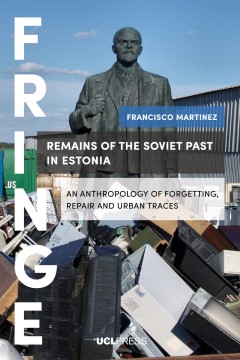
Remains of the Soviet past in Estonia : an anthropology of forgetting, repair…
What happens to legacies that do not find any continuation? In Estonia, a new generation that does not remember the socialist era and is open to global influences has grown up. As a result, the impact of the Soviet memory in people’s conventional values is losing its effective power, opening new opportunities for repair and revaluation of the past. Francisco Martinez brings together a numb…
- Edition
- -
- ISBN/ISSN
- 9781787353534
- Collation
- xix, 255 p. ill;
- Series Title
- -
- Call Number
- 974.98 REM F
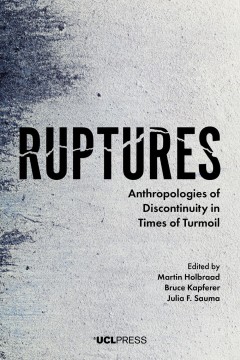
Ruptures : anthropologies of discontinuity in times of turmoil
Ruptures brings together leading and emerging international anthropologists to explore the concept of ‘rupture’. Understood as radical and often forceful forms of discontinuity, rupture is the active ingredient of the current sense of a world in turmoil, lying at the heart of some of the most defining experiences of our time: the rise of populist politics, the corollary impulse towards prot…
- Edition
- -
- ISBN/ISSN
- 9781787356184
- Collation
- xi, 250 p. ill;
- Series Title
- -
- Call Number
- 303.4 RUP M

Towards a comparative analysis of social inequalities between Europe and Lati…
This open access volume identifies the common and specific aspects of social mechanisms that generate inequalities, through comparative analyses of different dimensions in which inequalities are expressed. It includes studies on social inequalities in 5 European and 5 Latin American countries, along 11 thematic axes: inequalities in the labour market and labour trajectories; asymmetries in the …
- Edition
- -
- ISBN/ISSN
- 9783030484422
- Collation
- xxiii, 480p. : ill.
- Series Title
- -
- Call Number
- 305.5 TOW t
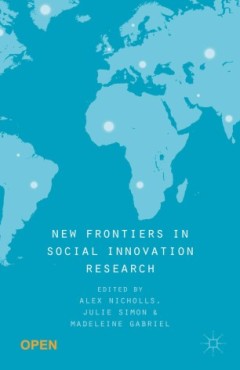
New frontiers in social innovation research
This book is open access under a CC BY license. Interest in social innovation continues to rise, from governments setting up social innovation 'labs' to large corporations developing social innovation strategies. Yet theory lags behind practice, and this hampers our ability to understand social innovation and make the most of its potential. This collection brings together work by leading social…
- Edition
- -
- ISBN/ISSN
- 9781137506801
- Collation
- xxix, 267p. : ill.
- Series Title
- -
- Call Number
- 338.064 NEW n

Fabricating modern societies : education, bodies, and minds in the age of steel
Fabricating Modern Societies: Education, Bodies, and Minds in the Age of Steel, edited by Karin Priem and Frederik Herman, offers new interdisciplinary and transnational perspectives on the history of industrialization and societal transformation in early twentieth-century Luxembourg. The individual chapters focus on how industrialists addressed a large array of challenges related to industrial…
- Edition
- -
- ISBN/ISSN
- 9789004410510
- Collation
- xviii, 246p. : ill.
- Series Title
- -
- Call Number
- 338.94935009041 FAB f
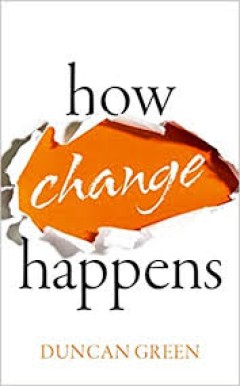
How change happens
Human society is full of would-be ‘change agents’, a restless mix of campaigners, lobbyists, and officials, both individuals and organizations, set on transforming the world. They want to improve public services, reform laws and regulations, guarantee human rights, get a fairer deal for those on the sharp end, achieve greater recognition for any number of issues, or simply be treated with r…
- Edition
- First edition.
- ISBN/ISSN
- 9780198785392
- Collation
- xviii, 268 pages : illustrations ; 23 cm
- Series Title
- -
- Call Number
- 301 GRE h
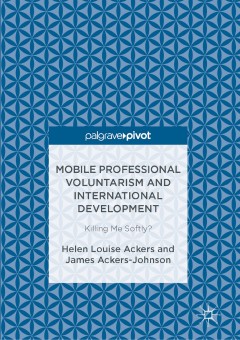
Mobile professional voluntarism and international development : killing me so…
This book explores the impact that professional volunteers have on the low resource countries they choose to spend time in. Whilst individual volunteering may be of immediate benefit to individual patients, this intervention may have detrimental effects on local health systems; distorting labour markets, accentuating dependencies and creating opportunities for corruption. Improved volunteer dep…
- Edition
- -
- ISBN/ISSN
- 9781137558336
- Collation
- xv, 173p. : ill.
- Series Title
- -
- Call Number
- 320 ACK m
 Computer Science, Information & General Works
Computer Science, Information & General Works  Philosophy & Psychology
Philosophy & Psychology  Religion
Religion  Social Sciences
Social Sciences  Language
Language  Pure Science
Pure Science  Applied Sciences
Applied Sciences  Art & Recreation
Art & Recreation  Literature
Literature  History & Geography
History & Geography